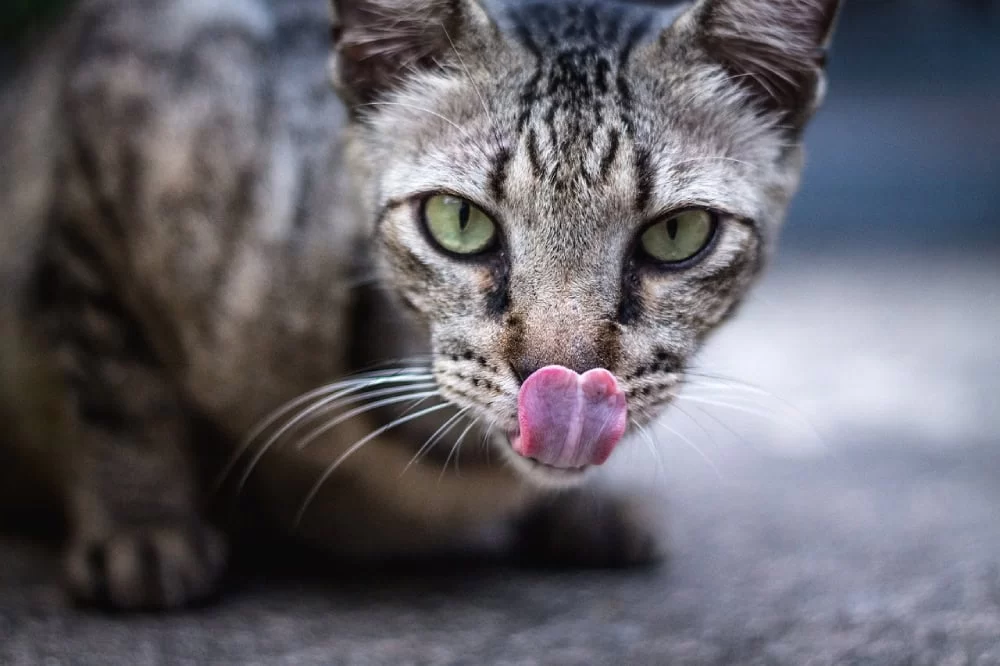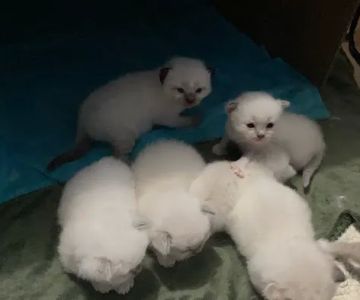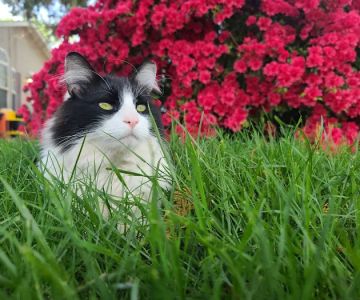Can Cats Eat Honey Mustard? A Deep Dive into the Safety and Risks of Honey Mustard for Cats
If you're a cat owner, you’ve probably wondered what kinds of human foods are safe to share with your feline friend. While some foods like chicken or tuna may seem like an obvious treat, others, like honey mustard, might leave you questioning their safety. Today, we’re tackling the common query: "Can cats eat honey mustard?"
The Basics of Honey Mustard
Honey mustard is a popular condiment made from a blend of mustard, honey, and other ingredients like vinegar, oil, and spices. This tangy, sweet sauce is a favorite at barbecues, on sandwiches, and in dips. However, what may be a tasty treat for humans can pose some risks for pets, especially cats. Understanding the components of honey mustard is the first step in determining whether it’s a good idea to share it with your cat.
What’s in Honey Mustard?
Before we explore whether honey mustard is safe for cats, let’s break down its ingredients. Honey mustard typically contains:
- Honey: This natural sweetener can cause digestive issues in cats if consumed in large amounts.
- Mustard: Mustard seeds contain compounds that can be irritating to cats’ digestive systems and might cause gastrointestinal distress.
- Vinegar: While vinegar in small quantities is not toxic, it can upset a cat’s stomach and cause discomfort.
- Spices and other additives: Many commercial honey mustard products contain garlic, onion, or artificial sweeteners, all of which are highly toxic to cats.
Is Honey Mustard Safe for Cats?
The short answer is: no, honey mustard is not safe for cats. While it might not cause immediate harm in tiny amounts, it’s not something you should intentionally feed your cat. Here's why:
1. The Dangers of Mustard
Mustard seeds, a key ingredient in honey mustard, contain compounds known as glucosinolates. These compounds can irritate your cat's gastrointestinal system, leading to symptoms like vomiting, diarrhea, and abdominal pain. In large amounts, mustard can even cause more severe digestive issues or poisoning.
2. The Risks of Honey
Honey, though natural, can be problematic for cats. While it’s not toxic in small quantities, honey is high in sugar, which is bad for cats. Cats are obligate carnivores, meaning their digestive systems are not built to process sugar. Too much sugar can lead to obesity, diabetes, or an upset stomach.
3. Garlic and Onion Exposure
Some commercially prepared honey mustard sauces contain garlic or onion powder. Both garlic and onions are toxic to cats, even in small amounts. They can cause oxidative damage to red blood cells, leading to hemolytic anemia, a condition where red blood cells are destroyed faster than they can be replaced. This can cause lethargy, weakness, and even organ failure if not addressed quickly.
4. The High Fat Content
Honey mustard often contains oils and fats that are not ideal for cats. While fats are an essential part of a cat’s diet, consuming too many unhealthy fats from human foods can cause obesity, pancreatitis, or other long-term health problems.
What Should You Do If Your Cat Eats Honey Mustard?
If your cat has accidentally eaten honey mustard, it’s important to monitor them closely. Look out for signs of digestive distress, such as vomiting, diarrhea, or lethargy. If your cat shows any of these symptoms, it’s best to contact your vet immediately. In most cases, your cat may just experience mild discomfort, but it’s always safer to err on the side of caution when it comes to food-related concerns.
Alternatives to Honey Mustard for Cats
While honey mustard isn’t a safe treat for your cat, there are plenty of healthy alternatives. If you’re looking to give your cat a little something extra, here are a few cat-friendly options:
- Plain cooked chicken: A protein-packed treat that cats will love.
- Cat treats: Many pet stores offer treats specifically formulated for cats, so you can give your furry friend a snack that’s both safe and delicious.
- Small pieces of fish: Cats love tuna and salmon (in moderation), which are packed with beneficial omega-3 fatty acids.
How to Prevent Your Cat from Eating Harmful Foods
One of the best ways to keep your cat safe is by preventing them from getting into foods that could harm them. Here are a few tips:
- Store human food safely: Keep your condiments, snacks, and leftovers out of reach. Cats are naturally curious, and they might try to sneak a bite when you’re not looking.
- Be cautious with sharing: While it’s tempting to share a bite with your furry friend, always double-check that the food is safe before offering it to your cat.
- Educate family and friends: Make sure that everyone in your household knows which foods are harmful to your cat, so there’s no risk of accidental ingestion.
Common Myths About Cats and Human Foods
Many cat owners are unaware of what their cats can or cannot eat. Here are a few common myths about feeding cats human foods:
- Myth 1: Cats can eat any human food in moderation. Fact: Many human foods, even in moderation, can be harmful to cats. Always research or consult a vet before sharing human food with your cat.
- Myth 2: Cats can eat honey safely. Fact: While honey is not toxic, it’s high in sugar and not suitable for a cat's digestive system.
Conclusion
In conclusion, while honey mustard may be a tasty treat for humans, it’s not a good idea to feed it to your cat. The combination of mustard, honey, vinegar, and potentially harmful additives like garlic or onion makes honey mustard unsuitable for feline consumption. Always prioritize your cat’s health by sticking to foods that are specifically designed for them, and when in doubt, consult your veterinarian.












